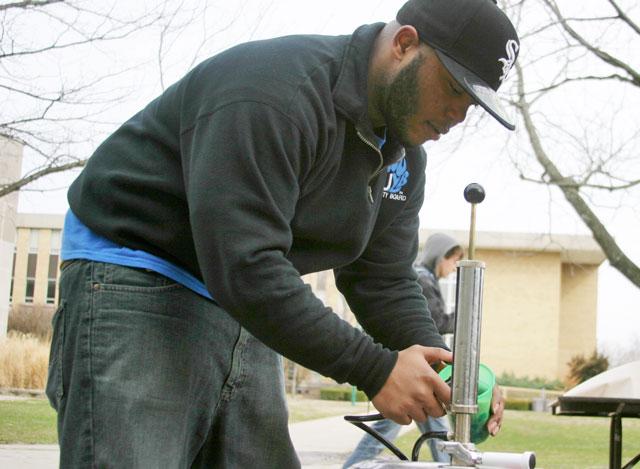Feature Photo: Celebrating alcohol-free St. Patty’s Day
(ARA) – Handy tool belt, equipped with all the essentials? Check. A vision of what the end result will look like? Check. A sense of adventure and determination? Check. Sounds like you’re ready to tackle your do-it-yourself project. Or are you? There’s one more tool you need to have a handle on before you begin – your credit.
Whether your DIY project is constructing a kit car, building a shed or replacing your kitchen counters, you should check your credit score before you get started, since it’s likely you’ll use credit or even a credit card to pay for your project materials and supplies. Every time you use credit, it can affect your credit score – which in turn influences your ability to get more credit.
Consider these five reasons why your credit is the first tool you’ll need to get your DIY project started:
1. When financing a home improvement project, credit makes sense for several reasons. First, because you’re using the credit to pay for something that will, in theory, increase your home’s value and your enjoyment of it; it’s an investment with foreseeable returns. Second, the cost of home improvement materials may be more than you are willing or able to pay out at one time. Credit allows you to manage the cost over a period of time that’s comfortable for you.
2. If you’ll be buying a lot of high-cost materials, the store you purchase from might offer you a store card with a seemingly enticing discount or reward for opening the account. If you know your credit score before you buy, you’ll be better able to assess if the store card’s interest rate and incentive is really competitive with the credit terms you already have on existing cards or could get from a financial institution.
3. A good credit score can help you qualify for better interest rates and lower monthly payments on loans. But your credit score can change and if you don’t check your credit report or monitor your credit, you might not know about changes right away. Before you commit to what kind of credit you’ll use for your DIY project, check your credit score. Websites like freecreditscore.com allow you to access your credit score when you enroll in credit monitoring. Monitoring your credit allows you to see how changes in your credit report can affect your score. You’ll also receive credit score alerts whenever your score changes.
4. Your credit could influence the scope of your project. When you check your score and find it higher than you expected, you may discover you can afford to expand the size of your project. Or, if you find some unpleasant surprises, you may decide to scale back on your project – and refocus your efforts on improving your credit.
5. Hopefully, this will not be your last DIY project. But how you use credit to finance your current project could influence your ability to fund future projects. Before you commit, look into a credit score estimator, which is available when you enroll in credit monitoring through freecreditscore.com. The estimator helps you understand how major financial decisions, like applying for loans or maxing out credit cards, may impact your credit score.
Do-it-yourself projects can enhance your home’s value and your enjoyment of it. By understanding one of your most important DIY tools – your credit – you’ll be better equipped to ensure your project delivers value, and not just cost, for years to come.
Feature Photo: Celebrating alcohol-free St. Patty’s Day
Darius White, a senior family and consumer sciences major and the cultural arts chair of University Board, fills a cup with root beer Monday during UB’s St. Patrick’s Day Alcohol-Free Celebration on the south quad.(Kimberly Foster






































































